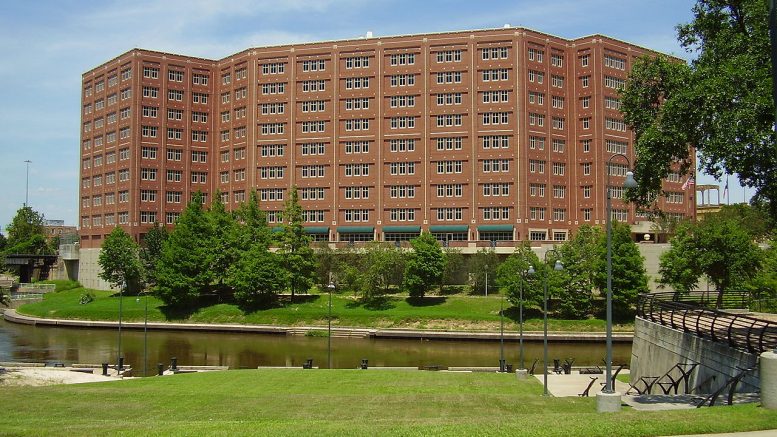According the the filings in a lawsuit brought by Equal Justice Under Law against Harris County, Texas, 77% of the inmates in Harris County Jail — largest in Texas, third largest in America — are there because they couldn’t make a bail payment of $5,000 or less.
Bail in the jail is assessed via video-links during which the accused are instructed not to speak and are not given access to counsel.
People who are imprisoned before sentence are significantly more likely to plead guilty, “almost 80 percent, compared to 56 percent of those who aren’t locked up before trial.”
The lawsuit argues that the practice of detaining people too poor to pay bail without assessing whether they can afford it is unconstitutional. It alleges that the county’s practice is to determine bail based on a generic offense-based schedule. Anyone who can’t pay is detained. Then usually within 24 hours, arrestees appear via a videolink before a hearing officer, who determines probable cause for the arrest and approves the original bail amount, sometimes adding to it, without inquiring about whether the arrestee can pay. Arrestees don’t get defense attorneys, nor are they usually allowed to speak or request to have their bail reduced. ODonnell said she was told not to speak during her hearing and it took all of 60 seconds. As one prosecutor recently put it, according to the lawsuit, if an arrestee “can’t pay, they sit in jail.”
After the hearing, anyone who still doesn’t have the money is taken to the County Court to see a judge and is assigned a court-appointed attorney. But bail is still unlikely to be reduced, given that it only happens in less than 1 percent of cases, and detainees stay locked up outside of the courtroom, often not even appearing inside. Many plead guilty — almost 80 percent, compared to 56 percent of those who aren’t locked up before trial — because they are told they can get released more quickly.
“Harris County’s wealth-based pretrial detention system violates the Equal Protection and Due Process Clauses of the United States Constitution,” the lawsuit says. “It has no place in modern American law.” It seeks an injunction to end the practice.
(Image: The 701 Jail, Whisper to Me, PD)
Source: boingboing.net





Be the first to comment on "Lawsuit: Texas’s Largest Jail Is Full of People Who Are Locked Up for Being Poor"